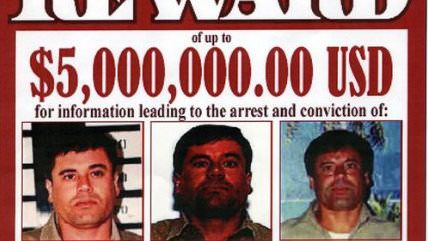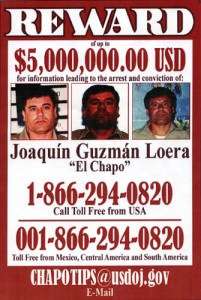Chicago Hasn't Seen Crime This Bad Since the Last Time The Feds Banned Something


Not since 1930 has Chicago declared anyone "Public Enemy No. 1," but the Chicago Crime Commission assures us that Joaquin "El Chapo" Guzman deserves the title every bit as much as the infamous Al Capone once did—even though he lives more than 2,000 miles away.
Like Capone, Guzman runs a crime syndicate that earns the majority of its vast revenues from the sale of illegal substances. Capone ran The Chicago Outfit, which (by some reports) earned more than $100 million per year from 1925 to 1930. That would be more than $1.3 billion per year in today's dollars, according to the Bureau of Labor Statistics inflation calculator.
Guzman is head of the Sinaloa Cartel, a brutal drug-trafficking operation headquartered in Western Mexico that rakes in about $3 billion each year. The influence of the cartel is so toxic that it is blamed for rising homicide rates in Chicago—and it could easily be blamed for significant violence elsewhere. The Sinaloa Cartel operates in 17 states in Mexico and in cities across North America, especially along the border.
It is impossible to know how many people have died at the hands of the Sinaloa Cartel, but as one of Mexico's major cartels, it is certain that they have claimed their fair share of the 50,000 victims since 2006 in Mexico alone.
During the past century, the two biggest threats that Chicago has seen are the kingpins of gangs that earn their vast profits by bootlegging—first alcohol and now drugs. This is not some sort of unfortunate accident. The federal government creates these criminals—and these criminal organizations—when it declares certain substances illegal.
The sale of "controlled" substances is a lucrative business thanks to the risks involved. But it's not just extra-normal profits that result from prohibition. It's crime organized on a massive scale, violent turf wars that kill tens of thousands each year, and entire communities threatened by cultures of corruption. None of this is new. We saw it during the '20s, and we're seeing it now with our never-ending war on drugs.


Show Comments (74)